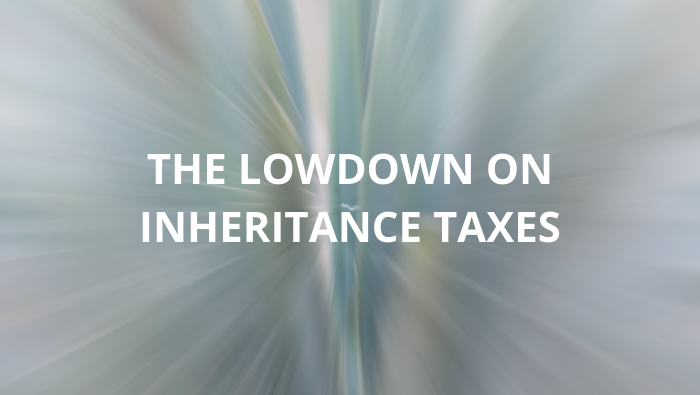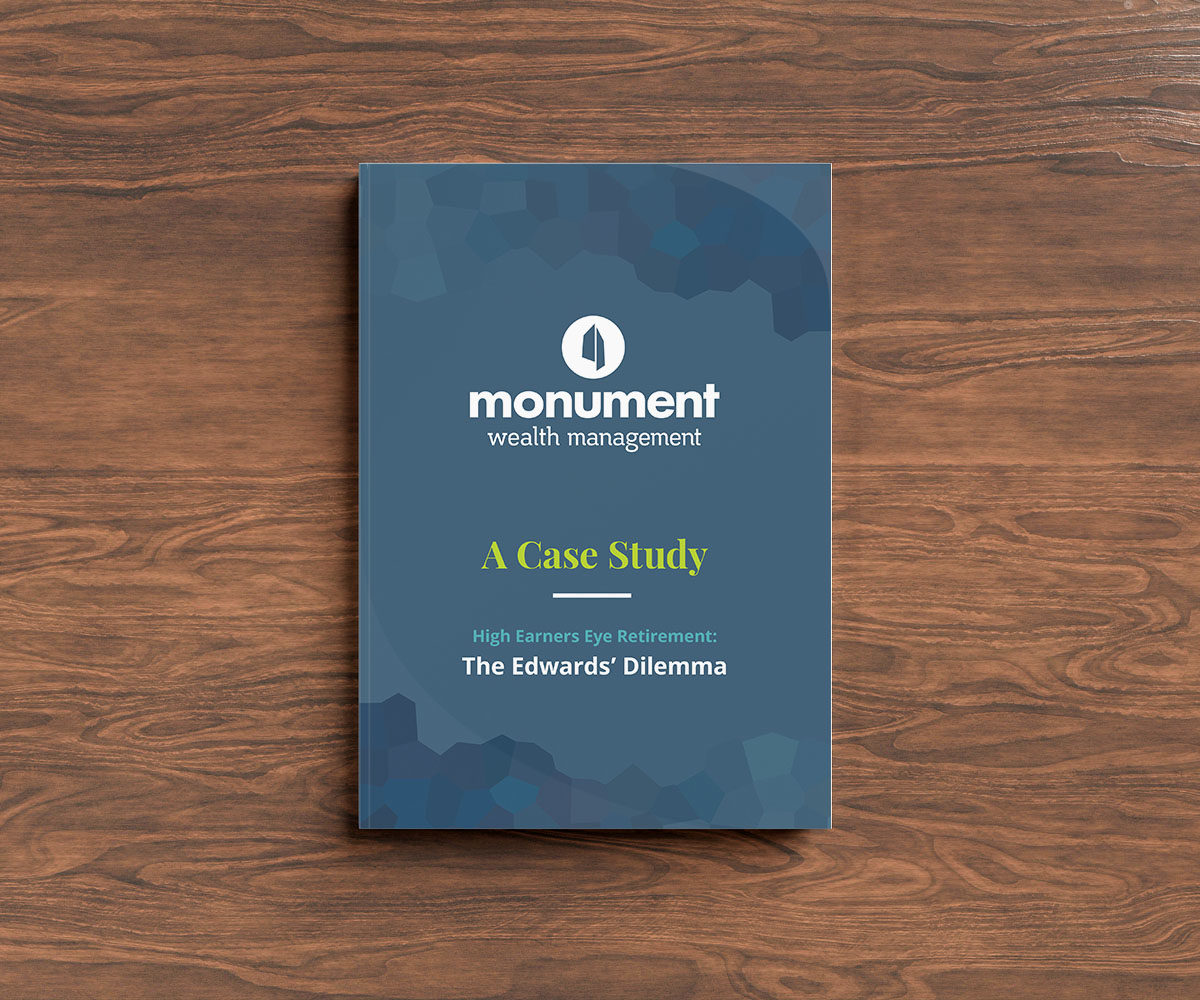Monument Wealth Management Articles
Is An Inheritance Taxable? It Depends, and Here’s Why.

Share on your favorite platform, or by email
Actually receiving an inheritance from someone who has passed away isn’t a taxable event, but how much tax you’ll pay when you take money out of that asset—for example by selling a stock or distributing money from a retirement account—depends on the asset itself. Here’s why.
Got a step-up in basis? You’ll owe less tax if you sell.
When an heir receives an asset from a decedent, the value of the property must be determined. Generally, this new, adjusted value (known as the adjusted basis) for income tax purposes is the property’s current fair market value (FMV) as reported on the decedent’s estate tax return. This can be either the FMV at the decedent’s date of death or the alternate valuation date (six months after the date of death) if that was selected. This new basis is referred to as a step-up in basis for the heir because the heir “steps-up” from the old, lower basis to the new, higher basis.
Basis is important because it determines how much tax you’ll have to pay when you sell.
- Lower basis = bigger gain = more tax to pay
- Higher basis = smaller gain = less tax owed
The “holding period” for the property you inherit is always deemed to be a long-term investment (ie. subject to lower long-term capital gains rates). This applies regardless of how long you actually hold the property before selling it.
Example: Gabrielle made a great investment in a stock that grew tremendously during her lifetime. She never sold the stock that she bought at $10/share. When she passed away, Simone inherited the stock, which was worth $150/share. Even though Gabrielle’s basis was $10/share, Simone’s basis will be $150/share (the value at Gabrielle’s death). This means that if she sells the stock when it’s $170/share, she will only pay long-term capital gains tax on a $20/share gain, not a $160/share gain.
When you might not get a step-up in basis.
If you’re inheriting an IRD asset
Assets considered “income in respect of a decedent” (IRD) do not qualify for the step-up in basis adjustment. IRD assets result if the decedent chose during life to defer paying income tax into the future. Common examples of IRD assets are:
- Qualified retirement plans such as 401k and 403b plans
- IRAs
- Annuities
- Savings bonds
- Installment notes
As an heir, your basis will be equal to the decedent’s basis in the asset—NOT the value of the asset at the decedent’s death. This ensures that the government will be able to collect income tax due on the deferred income.
Example: Sandra made regular contributions to her IRA and always claimed an income tax deduction. When Sandra dies, her heirs will have a basis in the IRA equal to Sandra’s basis, since the IRA is an IRD asset. When her heirs take distributions from the IRA, they will have to pay ordinary income tax on the distributions.
If you gifted an asset to the decedent within one year of the decedent’s death
If you inherit an asset from the decedent that you in fact had gifted to the decedent within one year of their death, you will not receive a step -up in basis. Your basis will be the decedent’s basis, which will be the same as your original basis before you made the gift.
Example: Blake gives an asset to his father worth $10,000 (less than the annual gift tax exclusion amount, so no gift taxes needed to be paid). Blake’s basis in the property was $2,000, which became Blake’s father’s basis. Blake’s father dies within one year of the gift, and he bequeaths the property back to Blake. Because it’s been less than a year, Blake’s basis in the property is $2,000 (his original basis).
When you receive life insurance proceeds.
If you’re the beneficiary of a life insurance policy on someone who has passed away, as a general rule, the death benefit paid to you will not be subject to income tax.
The only exception is if the decedent owned the policy first and then gave you the policy (ie. made you the owner of the policy) in exchange for “valuable consideration” (ie. you gave the decedent something in exchange for getting the policy or there was an economic reason behind transferring the policy). This is called the “transfer for value” rule.
Note about a possible change to tax law.
The tax code is never set in stone. New administrations and new congressional majorities may seek to make changes to tax law, which is the situation we are in now. While we don’t specifically know what tax laws may change under the Biden administration, we do know that while campaigning for president, Biden suggested:
- Eliminating step-up in basis for assets at death
- Death would be a taxable “realization event” (ie. taxes would be owed on capital gains even if heirs don’t sell anything)
This uncertainty can feel unsettling. Luckily, we exist.
A transparent partner for unfiltered advice.
Monument Wealth Management has decades of experience in the financial industry. Navigating and advising on an unpredictable market is what we do for fun. Well… that and helping our dogs live their best lives. We take a no B.S. approach to managing our client’s wealth–keeping you informed of the good, the bad, and the ugly and proposing realistic approaches to each.
Set up an appointment to start your Private Wealth Design. We’ll be your guide to financial freedom no matter what your taxes look like.
*Monument is neither a law firm nor a certified public accounting firm and no portion of the blog content should be construed as legal or accounting advice.

It’s time to find clarity around your finances and remove the anxiety of the unknown.
Read our case study, “High Earners Eye Retirement,” to see how we helped one of our clients plan for the long term.
Ready for straightforward, unfiltered opinion and tailored advice for YOUR questions, not everyone else’s?
IMPORTANT DISCLOSURE INFORMATION
Please remember that past performance is no guarantee of future results. Different types of investments involve varying degrees of risk, and there can be no assurance that the future performance of any specific investment, investment strategy, or product (including the investments and/or investment strategies recommended or undertaken by Monument Capital Management, LLC [“Monument”]), or any non-investment related content, made reference to directly or indirectly in this blog will be profitable, equal any corresponding indicated historical performance level(s), be suitable for your portfolio or individual situation, or prove successful. Due to various factors, including changing market conditions and/or applicable laws, the content may no longer be reflective of current opinions or positions. Moreover, you should not assume that any discussion or information contained in this blog serves as the receipt of, or as a substitute for, personalized investment advice from Monument. To the extent that a reader has any questions regarding the applicability of any specific issue discussed above to his/her individual situation, he/she is encouraged to consult with the professional advisor of his/her choosing. No amount of prior experience or success should be construed that a certain level of results or satisfaction will be achieved if Monument is engaged, or continues to be engaged, to provide investment advisory services. Monument is neither a law firm nor a certified public accounting firm and no portion of the blog content should be construed as legal or accounting advice.
A copy of Monument’s current written disclosure Brochure discussing our advisory services and fees is available for review upon request or at www.monumentwealthmanagement.com/disclosures. Please Note: Monument does not make any representations or warranties as to the accuracy, timeliness, suitability, completeness, or relevance of any information prepared by any unaffiliated third party, whether linked to Monument’s website or blog or incorporated herein, and takes no responsibility for any such content. All such information is provided solely for convenience purposes only and all users thereof should be guided accordingly.
Historical performance results for investment indices, benchmarks, and/or categories have been provided for general informational/comparison purposes only, and generally do not reflect the deduction of transaction and/or custodial charges, the deduction of an investment management fee, nor the impact of taxes, the incurrence of which would have the effect of decreasing historical performance results. It should not be assumed that your Monument account holdings correspond directly to any comparative indices or categories. Please Also Note: (1) performance results do not reflect the impact of taxes; (2) comparative benchmarks/indices may be more or less volatile than your Monument accounts; and, (3) a description of each comparative benchmark/index is available upon request.
Please Remember: If you are a Monument client, please contact Monument, in writing, if there are any changes in your personal/financial situation or investment objectives for the purpose of reviewing/evaluating/revising our previous recommendations and/or services, or if you would like to impose, add, or to modify any reasonable restrictions to our investment advisory services. Unless, and until, you notify us, in writing, to the contrary, we shall continue to provide services as we do currently. Please Also Remember to advise us if you have not been receiving account statements (at least quarterly) from the account custodian.